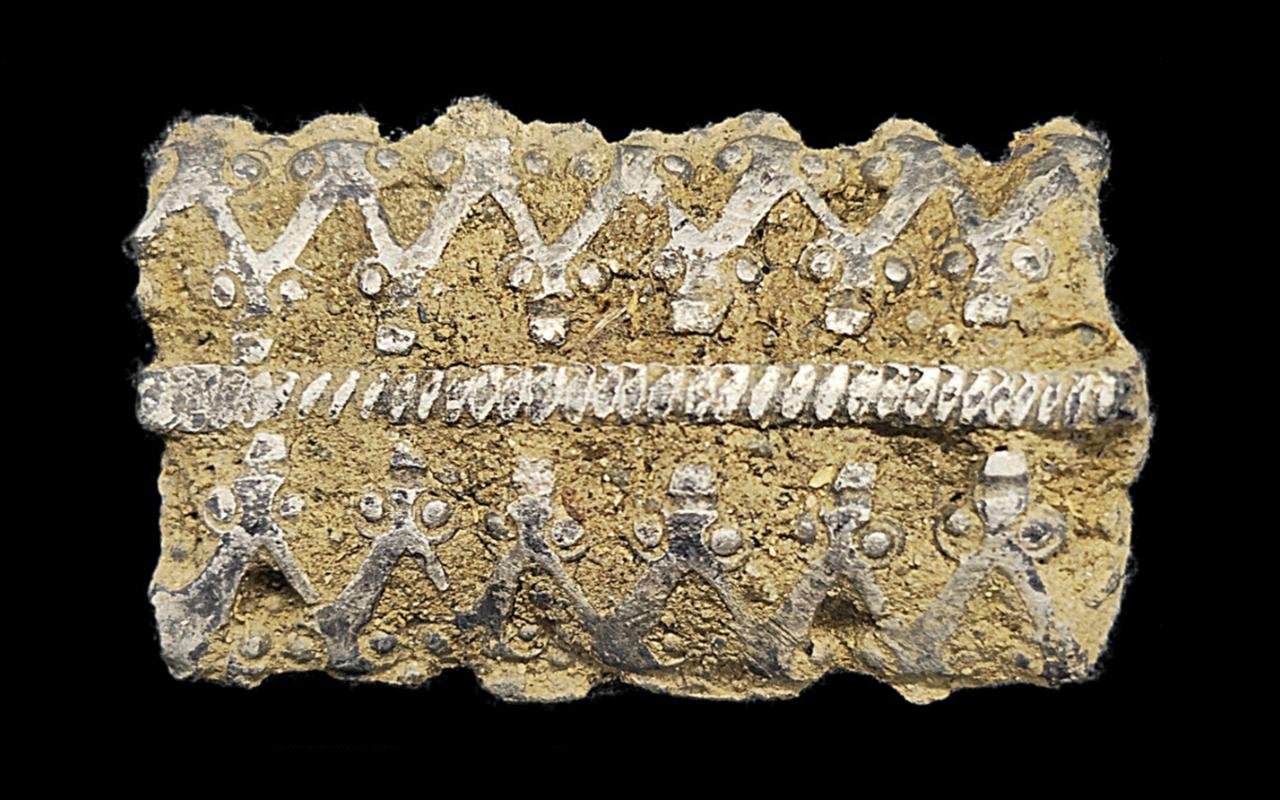Metal detectorist Jørgen Strande uncovered two Viking Age silver artifacts—a bracelet and a coin—within a day of each other in a farmer’s field in Innlandet County, Norway.
 The piece of a Viking Age silver bracelet was found in a farmer’s field in Norway. Credit: Jørgen Strande
The piece of a Viking Age silver bracelet was found in a farmer’s field in Norway. Credit: Jørgen Strande
On October 28, while metal detecting in the snow-covered field, Strande unearthed a silver bracelet, leaving him “totally surprised.” The exact age of the bracelet is uncertain, but it is traced back to the Viking Age, spanning from around CE 800 to the 11th century. Strande, who followed proper protocol, took GPS coordinates, pictures, and promptly informed local authorities.
The day before discovering the bracelet, Strande found a coin in the same field, likely circulating between the 10th and 11th centuries. Both finds have been hailed as unprecedented by Strande, who began metal detecting in 2019. His interest in archaeology was sparked by watching the show Time Team with his grandmother.
The field in Bøverbru, Innlandet County, where Strande made the discoveries, had historical significance, with a Viking sword and shield found in a grave in the early 1900s. Strande, having received permission to search the area in the summer, spent extensive time there, expecting to find interesting artifacts but not anticipating a silver bracelet.
The silver bracelet, weighing exactly 15 grams, is believed to have been used as “hacksilver,” fragments or pieces of silver items commonly used as currency or bullion by the Vikings.
Lars Pilø, an Innlandet County archaeologist, told Newsweek that the discovery of hacksilver in inland farms indicates a thriving silver economy during the Viking Age, challenging previous notions that such economies were limited to trading places near the sea.
Strande, expressing his excitement, mentioned that it’s possible he may find additional fragments of the silver bracelet during future metal detecting excursions. The thrill of metal detecting, described by Strande as “the best hobby in the world,” has been a pᴀssion since he started in 2019.
In an interview with The Viking Herald, Strande shared information about his discovery, recounting the moment he saw the silver shining in the hole and his feelings of joy. He highlighted the importance of notifying authorities and following legal procedures, emphasizing his dedication to recovering history in his hometown.





